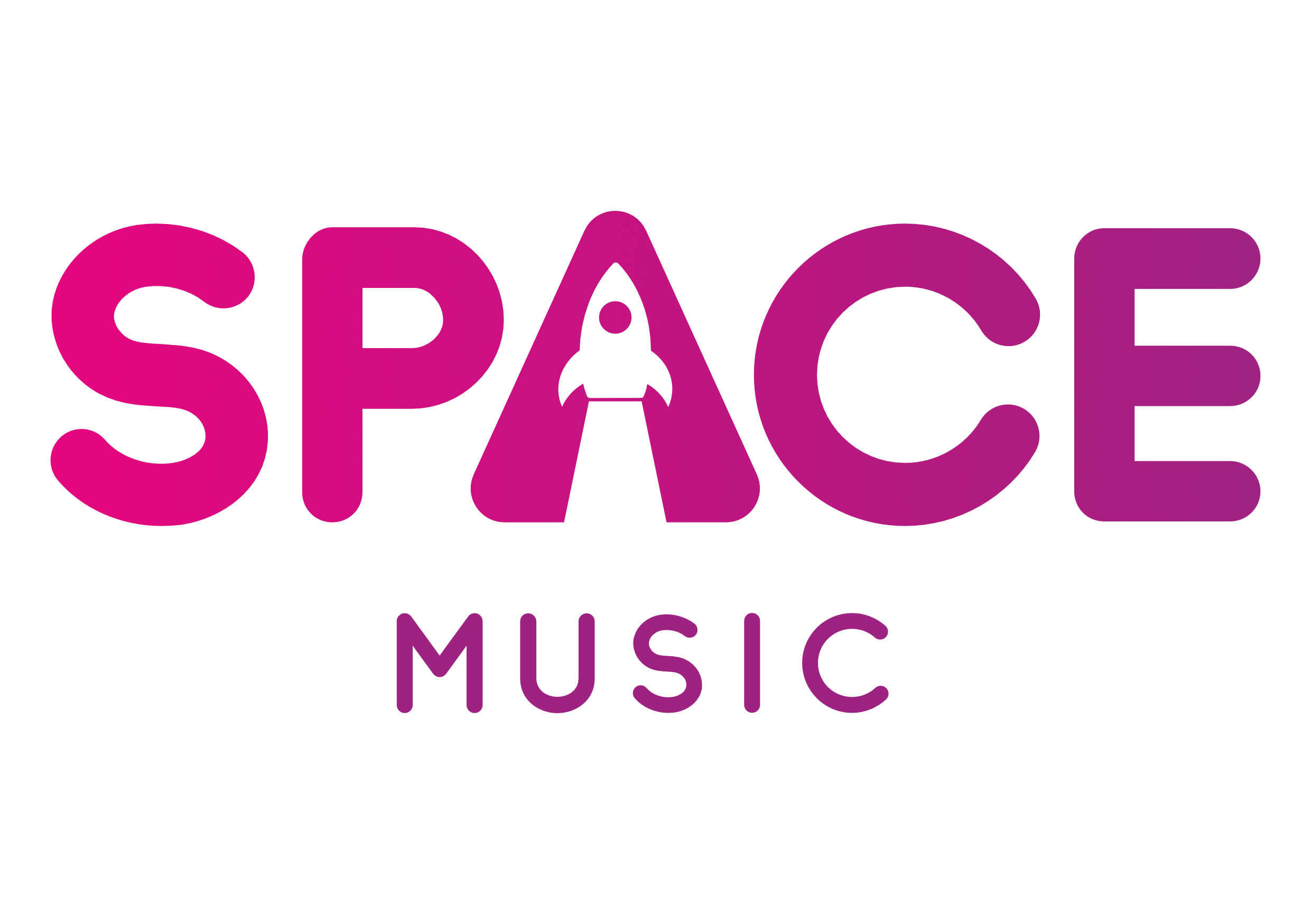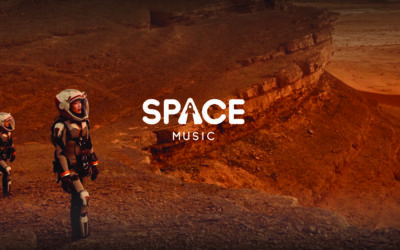https://space-music.co/classement-des-plateformes-streaming-et-reseaux-sociaux-utilises-par-les-artistes-et-professionnels-du-secteur-musical
https://space-music.co/en/ranking-of-streaming-platforms-and-social-networks-used-by-artists-and-music-industry-professionals
https://space-music.co/es/ranking-de-plataformas-de-streaming-y-redes-sociales-utilizadas-por-artistas-y-profesionales-de-la-industria-musical
Who uses what?
The music industry is constantly evolving, and artists and professionals need to adapt to make the most of the different platforms and social networks available. In this article, I explore the pros and cons of the main streaming platforms and social networks for music industry players, as well as how Space Music the new platform is positioned as a single, dedicated solution to meet all the needs of this industry.

Here are my rankings for streaming platforms, with pros and cons:
1. Spotify
Advantages :
- Leading streaming platform with a massive international audience
- Create and share personalized playlists
- Easy integration with social networks and other online music services
Disadvantages :
- Limited income for artists due to low royalty rates
- Intense competition with other artists on the platform
- No direct control over song promotion and visibility
2. Apple Music
Advantages :
- Integration with the Apple ecosystem (iPhone, iPad, Mac)
- Download music for offline listening
- Exclusive and original content
Disadvantages :
- Fewer users than Spotify
- Less user-friendly interface for some users
- Limited income for artists due to low royalty rates
3. YouTube
Advantages :
- Most popular video platform with large international audience
- Monetize videos through advertising
- Integrated video creation and editing tools
Disadvantages:
- Increased competition with other content creators
- Copyright and content removal issues
- Variable revenues based on views and ads
4. SoundCloud
Advantages :
- Music-sharing platform focusing on independent artists
- Allows artists to receive direct feedback from listeners
- Monetize your creations with SoundCloud Pro
Disadvantages :
- Less audience than Spotify or Apple Music
- Difficult to stand out among the many artists present
- Copyright and content removal issues
5. Deezer
Advantages :
- User-friendly, intuitive interface
- Extensive music catalog and discovery features
- Integration with social networks and other online music services
Disadvantages:
- Fewer users than Spotify or Apple Music
- Limited income for artists due to low royalty rates
- Difficult to stand out among the many artists present
6.tidal
Advantages :
- Superior audio quality (Hi-Fi)
- Exclusive and original content
- Support for independent artists and labels
Disadvantages :
- Fewer users than the main streaming platforms
- Higher subscription costs for listeners
- Difficult to stand out among the many artists present
7. Bandcamp
Advantages :
- Platform focused on direct support for artists
- Sell your music and related products
- Flexible payment system for auditors (fixed price or at buyer's discretion)
Disadvantages:
- Less audience than major streaming platforms
- Requires active management of your Bandcamp page
- Limited promotion and visibility without additional marketing efforts
8. Mixcloud
Advantages :
- Specializing in DJ sets, podcasts and radio shows
- Allows creators to monetize their content via Mixcloud Select
- Respect for copyright through agreements with labels and collective management organizations
Disadvantages:
- Less audience than major streaming platforms
- Limitations on downloading and sharing content
- Less user-friendly interface than some other platforms
9. Qobuz
Advantages :
- Superior audio quality (Hi-Res)
- Music catalog focused on quality and diversity
- Albums and tracks available for download
Disadvantages:
- Fewer users than the main streaming platforms
- Higher subscription costs for listeners
- Difficult to stand out among the many artists present
10. Vimeo
Advantages :
- A video platform focused on quality and creativity
- Monetize videos with Vimeo On Demand
- No advertising for paying users
Disadvantages :
- Less audience than YouTube
- Subscription fee for designers wishing to use advanced features
- Competition with other video content creators
11. Dailymotion
Advantages :
- Alternative video platform to YouTube
- Monetize videos through advertising
- Integration with social networks and other online services
Disadvantages:
- Much smaller audience than YouTube
- Copyright and content removal issues
- Variable revenues based on views and ads
12. Audius
Advantages :
- Decentralized music platform based on blockchain
- Direct remuneration of artists with AUDIO tokens
- Earn tokens by listening to and sharing music
Disadvantages:
- Still in the development and adoption phase
- Technical complexity for some users
- Difficult to stand out among the many artists present

Here are my rankings for social networks, with their advantages and disadvantages:
1. Instagram
Advantages :
- Dynamic, visual platform, ideal for promoting music and brand image
- Ability to integrate music snippets into stories and posts
- Large international audience and high engagement
Disadvantages:
- Limitations on copyright and related rights
- Difficult to stand out among the many artists present
- Requires active management and an adapted content strategy
2. TikTok
Advantages :
- Platform for short music videos and viral challenges
- Opportunities for collaboration and rapid growth
- Reaches a young, committed audience
Disadvantages:
- Intense competition with other content creators
- Limitations on copyright and related rights
- Ephemerality of content and dependence on viral trends
3. Twitter
Advantages :
- Microblogging platform for fast, direct interaction with fans
- A tool for promoting and disseminating information on music releases and events
- Possibility of creating discussions and hashtags to increase visibility
Disadvantages:
- Less music-oriented than other social networks
- Limitations on copyright and related rights
- Requires active management and an adapted content strategy
4. Facebook
Advantages :
- Large international audience and ability to create dedicated pages
- Integration with other platforms, such as Instagram and Spotify
- Advertising and promotional tools to reach new fans
Disadvantages :
- Declining organic engagement and the need to invest in advertising
- Limitations on copyright and related rights
- Less music-oriented interface than other social networks
5. LinkedIn
Advantages :
- Professional platform for music industry players
- Opportunity to create networks and partnerships with other professionals
- Promotional tool for artists and companies in the sector
Disadvantages :
- Less music-oriented than other social networks
- Smaller, more professional audience
- Requires active management and an adapted content strategy
6. Snapchat
Advantages :
- Platform focused on ephemeral content and stories
- Share behind-the-scenes moments and connect with fans
- Music clips can be integrated into stories
Disadvantages :
- Smaller audience than other social networks
- Limitations on copyright and related rights
- Ephemerality of content and dependence on trends
7. Patreon
Advantages :
- Participatory funding platform enabling artists to receive direct support from their fans
- Exclusive content and benefits for paying subscribers
- Build an engaged community and generate recurring revenues
Disadvantages :
- Requires active management and an adapted content strategy to build subscriber loyalty
- Less focused on promotion and fan acquisition than other social networks
- Artists must provide valuable content to entice fans to pay
My conclusion,
An analysis of the different streaming platforms and social networks for artists and music industry professionals highlights the specific advantages and disadvantages of each. The ideal choice depends on the objectives, needs and preferences of each player in the sector. However, one common negative point emerges: the absence of systematic remuneration for performance and the random, unstable or non-existent distribution of copyright and neighboring rights.
Streaming platforms and social networks offer enormous opportunities in terms of distribution, promotion, discovering new talent and building audience loyalty. However, the diversity of platforms and their particular characteristics make it difficult for artists and music industry professionals to implement a coherent and effective strategy.
Faced with these challenges, it's crucial for music industry players to adapt their strategies to the specificities of each platform and social network, taking into account their strengths and weaknesses. Ultimately, the aim is to optimize their online presence and reach their target audience, while capitalizing on the unique advantages offered by each platform, not forgetting the importance of fair remuneration for performances and copyright and neighboring rights.
A solution?
Faced with the challenges posed by the multitude of streaming platforms and social networks, as well as the question of equitable remuneration for performances and copyright and neighboring rights, Space Music appears to be a promising and innovative solution for artists and music industry professionals.
Space Music combines the functionalities of a marketplace and a social network, offering a fluid, integrated user experience for managing and developing one's talent or profession. What's more, the platform focuses on fair digital remuneration for performances and copyright and neighboring rights, thanks to their algorithm.
Space Music is a centralized, dedicated platform designed specifically to meet the needs of the music industry. By bringing together all the necessary features and tools in one place, Space Music enables artists and professionals to manage and develop their careers in a simplified and efficient way.
Among the many advantages offered by Space Music, the platform stands out for its ability to remunerate performances fairly and ensure a more stable distribution of copyright and neighboring rights. What's more, users can link their accounts on other streaming platforms and social networks, centralizing all their online activities and making it easier to manage their digital presence.
In addition, Space Music represents a unique opportunity for artists and music industry professionals to overcome the challenges posed by traditional streaming platforms and social networks. By offering a solution tailored to their specific needs and focusing on fair remuneration, Space Music is positioning itself as a major player in the music industry's digital landscape.
Currently
526 Titans
Support Space Music
The beta version
I'm delighted to announce that Space Music is now available in its first beta version, allowing users to test the first features in a web-based version. I invite you to discover this beta version and share your impressions and suggestions to help us improve the platform. To test the app right now, click on the following link www.app.space-music.co.
Don't miss it!
Right now, an exceptional offer allows you to contribute to this project and take an active part in it. Become a TITAN member at Space Music by clicking on the following link www.space-music.co/limited-offer.
Find SPACE MUSIC on social networks



